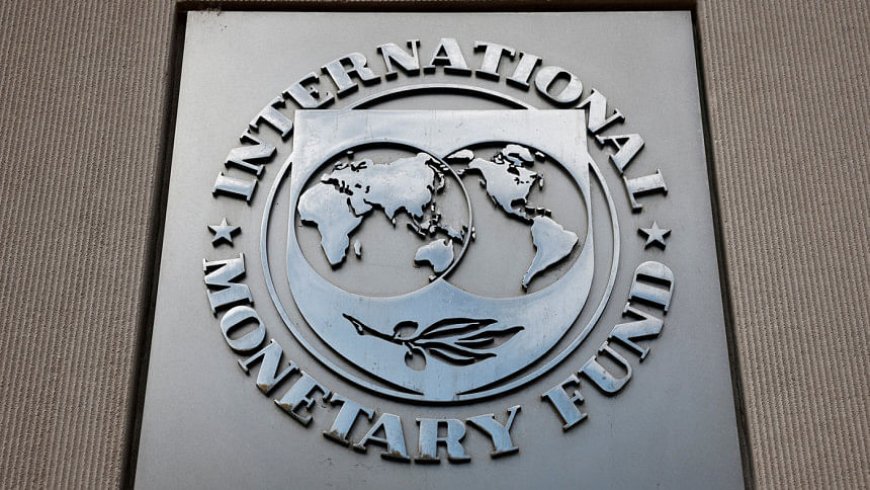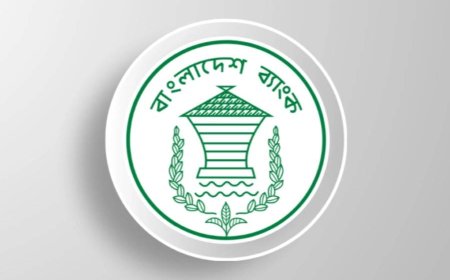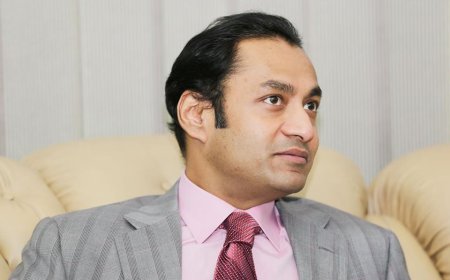IMF says Bangladesh requires more time to adopt fully flexible exchange rate system
IMF says Bangladesh requires more time to adopt fully flexible exchange rate system

Bangladesh Needs More Time to Shift to Fully Flexible Exchange Rate: IMF
Bangladesh is currently undergoing a transition toward a fully flexible exchange rate system, but the process will take time, the International Monetary Fund (IMF) said at a virtual press briefing on Sunday.
Both the authorities and market participants must be prepared for this shift, the IMF noted, as it briefed reporters following the completion of the combined third and fourth reviews of Bangladesh’s reform programme.
Chris Papageorgiou, the IMF mission chief for Bangladesh, stated that the country is in a transitional phase under its economic reform commitments linked to the IMF’s $5.5 billion loan programme.
In May, the Bangladesh Bank adopted a more flexible exchange rate mechanism to meet conditions under the IMF-supported reform agenda. However, an unofficial band still exists in the foreign exchange market. “The current crawling peg with a band is designed to offer the needed flexibility at this stage,” said Papageorgiou.
He clarified that the current system is a temporary arrangement. “This is not a fully flexible exchange rate regime. It is a transitional framework intended to eventually move the country toward full flexibility,” he said.
Papageorgiou explained that such a design takes into account Bangladesh’s current stage of development and aims to support a gradual transition. He emphasized that the long-term objective remains the adoption of a fully flexible exchange rate system as the economy matures.
“This entire transition must be part of a comprehensive strategy, one that we will support but must ultimately be led by Bangladesh Bank,” he added.
On inflation, Papageorgiou highlighted that controlling price pressures has been a central focus of the IMF programme, with consumer inflation remaining persistently high. “Food inflation reached 14.5 percent and overall inflation peaked at nearly 12 percent. However, there are signs that inflation is now trending downward.”
Headline inflation has eased to around 9 percent, though he cautioned this is still too high. “We’re not satisfied with these inflation levels,” he said, commending the central bank's tight monetary policy and reaffirming the target of reducing inflation to 5–6 percent.
He warned that potential external shocks, such as an oil price spike due to the ongoing Middle East conflict, could still pose risks. “While such shocks are uncertain, recent reforms — especially in the exchange rate — have helped strengthen the economy’s resilience,” he said.
Noting that monetary tools alone cannot control supply-side inflation, particularly food prices, Papageorgiou added, “The good news is that food inflation is also beginning to decline.”
On the financial sector, Ivo Krznar, IMF’s deputy mission chief for Bangladesh, stressed the need for reforms to enhance transparency, corporate governance, and legal protections. “These are positive steps, but now is the time to maintain momentum on the broader reform agenda,” he said.
Krznar outlined three priorities for a government-wide strategy: a full diagnostic review of the banking sector, including an assessment of capital adequacy; a review of fiscal support measures; and a concrete plan to address vulnerabilities in weak banks.
The briefing also featured Jayendu De, IMF’s resident representative in Bangladesh, and was moderated by Randa Elnagar, Director of the IMF’s Communications Department.
What's Your Reaction?





















































































